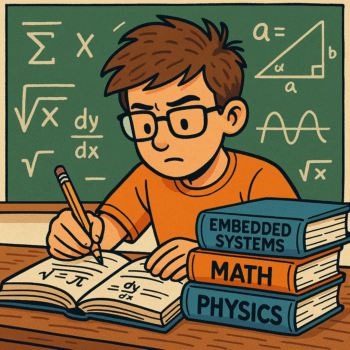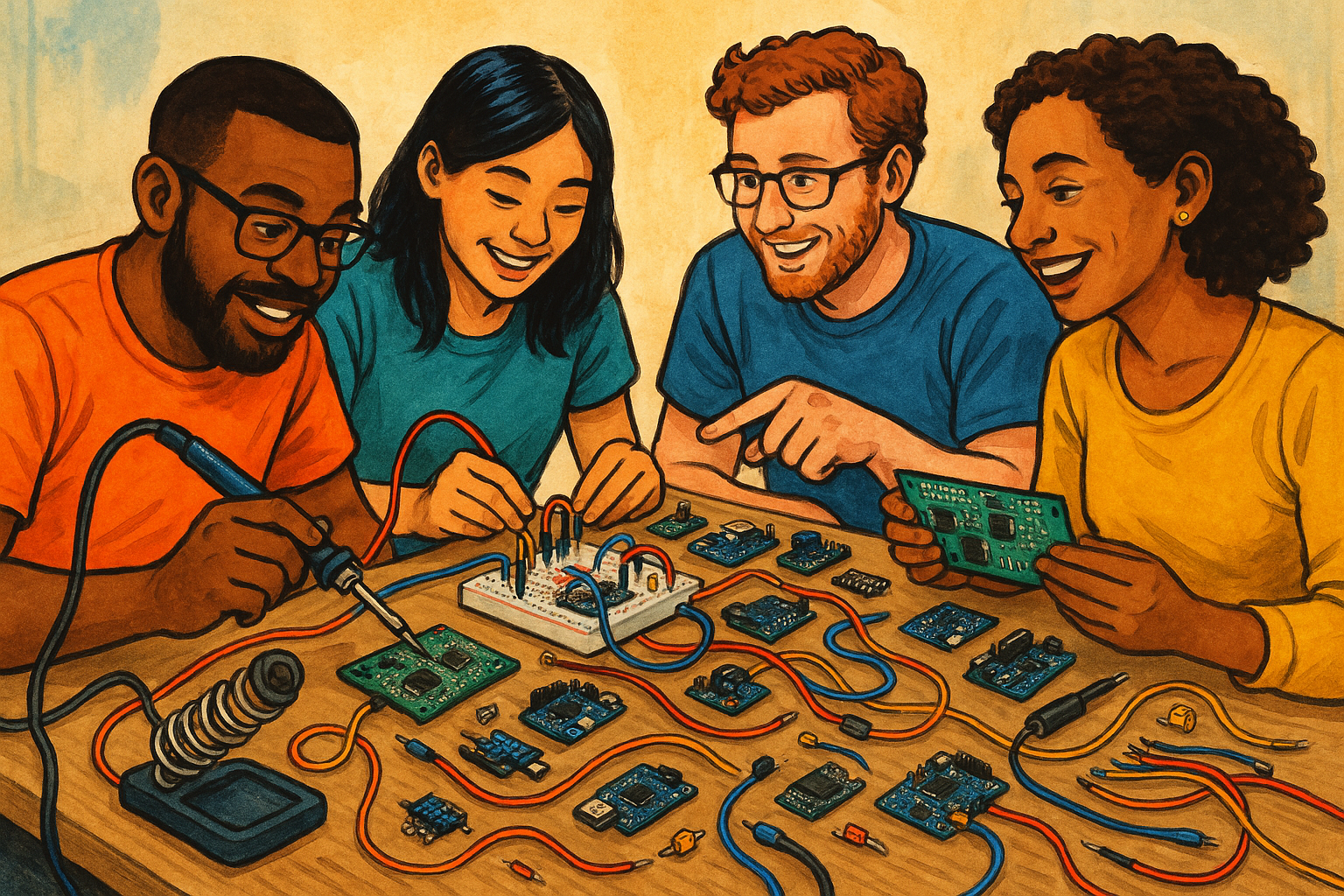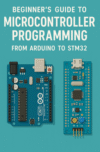When students ask me what they should focus on in school to become great embedded engineers, my answer is never just “learn C.” Sure, coding in C is the bread and butter of embedded systems, but being excellent in this field is about weaving together a surprisingly wide set of skills. Embedded engineering is at the crossroads of hardware, software, electronics, and even systems thinking. If you’re still in school and serious about this path, here are the subjects that matter most.
Computer Science Fundamentals
At its core, embedded systems engineering is about writing efficient, reliable software for tiny computers that often have just a few kilobytes of RAM. Studying computer science teaches you algorithms, data structures, and operating system concepts. A course in real-time systems is especially valuable—since embedded devices live in the real world, timing often matters more than raw performance.
Electrical Engineering and Digital Logic
You can’t build what you don’t understand. Classes in circuit theory, digital logic design, and microelectronics give you the ability to see beyond just software. You’ll need to know how signals move through a board, how to debounce a switch, or why a capacitor solves that “mystery” reset problem. Learn how transistors, flip-flops, and logic gates really work—because at some point, you’ll debug an issue that no compiler can help you with.
Microcontrollers and Computer Architecture
This is where embedded engineering feels tangible. Courses that cover microcontrollers, assembly language, memory hierarchies, and bus architectures give you insight into how your code runs on bare metal. It’s one thing to write in C, but understanding how your for loop translates into assembly and then into CPU cycles is what makes you a true embedded engineer. Pay attention to ARM Cortex-M or RISC-V architecture courses if your school offers them—they’re at the heart of today’s embedded systems.
Control Systems and Signal Processing
If you’re headed toward robotics, drones, or automotive systems, control theory is non-negotiable. Understanding PID loops, stability, and transfer functions gives you the tools to build systems that interact safely with the physical world. Add in digital signal processing (DSP) if you’re interested in audio, vision, or communications—because a lot of embedded engineering is about massaging analog reality into digital form.
Programming Languages: C, C++, and Python
C will always be king in embedded work, but C++ is increasingly important with modern RTOSes and embedded Linux platforms. Learn both deeply. Meanwhile, Python is the unsung hero of embedded engineers—it’s not for your firmware, but for scripting, automating tests, or even prototyping ideas. If you leave school fluent in C, comfortable in C++, and capable in Python, you’re in good shape.
Real-Time Operating Systems and Embedded Linux
Many embedded projects still run bare metal, but an increasing number run FreeRTOS or even embedded Linux. If your school offers operating systems labs, take them. Understanding scheduling, interrupts, memory management, and device drivers is what separates a tinkerer from a professional engineer.
Communication Protocols and Networking
From UART and I²C to CAN bus and Ethernet, embedded devices are all about talking to other devices. Networking and communications courses give you the foundation to understand error detection, throughput, latency, and the trade-offs of different protocols. This becomes critical when you’re debugging why two devices won’t talk to each other at 2 a.m.
Math: Discrete Math, Linear Algebra, and Probability
Engineers love to say they “never use math,” but in embedded systems, math shows up everywhere. Discrete math underpins state machines. Linear algebra appears in robotics, vision, and sensor fusion. Probability and statistics matter for signal processing, error correction, and data analysis. You don’t need to be a mathematician, but you do need to be fluent enough to apply the tools when the problem demands it.
Soft Skills: Problem Solving, Documentation, and Teamwork
Finally, don’t ignore the human side. The best embedded engineers are great communicators because they bridge hardware teams, software teams, and even business stakeholders. Being able to document a design, explain an interrupt bug clearly, or mentor a junior engineer often matters as much as technical brilliance.
Embedded systems is one of the few fields where you truly get to be a jack of all trades—and being a master comes from learning to blend disciplines. If you’re in school, focus on computer science, electrical engineering, and control theory, while building strong programming skills in C and C++. Layer in networking, math, and real-time systems as you go.
What sets apart the best embedded engineers isn’t just technical knowledge—it’s the ability to connect dots across hardware and software, theory and practice. If you invest in these subjects now, you won’t just graduate—you’ll walk into your first job already speaking the language of embedded systems fluently.



